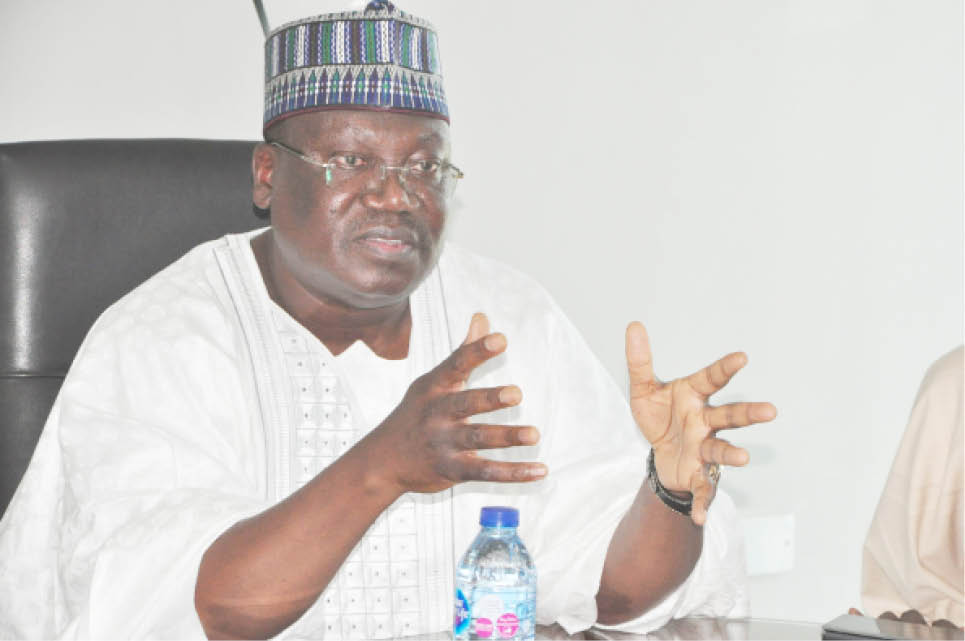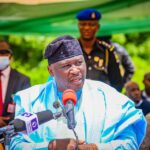With the proclamation by President Muhammadu Buhari authorising the inauguration on Tuesday June 11th 2019, of the incoming Ninth National Assembly, and the valedictory session last Thursday of the outgone Eighth National Assembly, the stage is now set for an end-game to a process that has been running since March this year, when the elections into the National Assembly were held. With the polls over, and the emergence of winners to the chambers, the tussle for the presiding officers or the leadership of the Ninth National Assembly also commenced. It is easily recalled that the aftermath of the polls featured a frenzied multi-stage political drama over the choice of leaders for the yet to be inaugurated assembly members, with sundry interests laying claim to designated offices.
Top on the list was the intervention by the leadership of the ruling APC which asserted that it had to exercise total control over the affairs of the Ninth National Assembly, and even went ahead to anoint its own candidates – namely Senator Ahmed Lawan for the office of President of the Senate and Honourable Femi Gbajabiamila for that of Speaker of House of Representatives. The interest of the APC was to establish the principle of party supremacy which its Chairman Adams Oshiomhole has spiritedly pursued, since his coming to office last year. In the same vein, reactions trailed this development in various forms including the emergence of party members as aspirants to contest the offices with the so anointed party candidates.
The leadership or Principal Officers of each of the two chambers features at least 10 officers, including the two presiding officers for each chamber. However, the tussle has always been most acute with the presiding officers who are just four namely the President of the Senate, the Speaker of the House of Representatives, the Deputy Senate President and the Deputy Speaker of the House. However, the top card remains the President of the Senate who in his capacity as the leader of the Upper Chamber, also serves as the Chairman of the National Assembly system.
Typically, the envisaged elections billed for Tuesday June 11th 2019 for the presiding officers shall proceed from the Senate chamber where the Clerk to the National Assembly (CNA) Barrister Mohamed Ataba Sani-Omolori, will assemble the Senators-elect, read the Presidential Proclamation to their hearing and conduct a roll-call for all with Certificates of Return from the INEC. After which he, acting as the returning officer, invites nominations for the office of the Senate President. In the event of a single nominee who is unanimously unopposed by his or her colleagues such will be declared by the CNA as duly elected for the office. However, if there come up any other nomination(s) then is the recourse to election mandatory. This process will be repeated for the Deputy Senate President, after which the CNA proceeds to the House of Representatives for the same process in electing the Speaker and the Deputy Speaker.
In the present race for the Ninth National Assembly, the hitherto wide field of aspirants for the Senate President has been narrowed down to just two – Ahmed Lawan and Ali Ndume, out of a final three, given the withdrawal of Danjuma Goje early last week. The entire emergent situation will be therefore be determined by whether one of the candidates withdraws between now and the time of the elections. Otherwise a voting process will take place and throw the APC’s anointed Lawan, against the ‘independent’ Ndume, along with whatever role the opposition lobby will likely play in other to marshal relevance for itself in the Senate Chamber. It is not for nothing that the top PDP caucus met last week at the Bayelsa State Governor’s Lodge in Abuja, ostensibly on the forthcoming National Assembly leadership polls.
Meanwhile for the House, the race seems to have been won before it even started with Femi Gbajabiamila leading his opponents with more than a head start, given the traction already mobilized by his camp. From the look of things, it may take an uphill task for him to be beaten. It is therefore in the Senate that the intervention of the ruling APC which controls a majority in the two chambers, needs to be well managed, if the party’s gamble on its anointed candidate will pay off.
Incidentally some observers have disparaged Ndume as engaging in anti-party activities. Yet the flip side of the argument is that his actions have helped the country’s democracy by asserting the autonomy of the legislature as enshrined in the Constitution. He, by his action is sending an important message backed by reality and law, that while the APC as the ruling may be in control of the executive arm and hence the levers of the administration, its sway of total authority stops at the boundary of the legislature, where different political parties enjoy constitutional legitimacy to operate without let or hindrance.
Rather significant is that the independent campaigns by Ndume and any other candidate have stirred up the anointed ones from any form of complacency and offered the country deeper insights into the credentials of whoever wins the top jobs in the National Assembly. Ndume and his co-travelers, could therefore be seen by the opposition in the National Assembly and beyond as not only the deal-makers but also change agents with whom collaboration and accommodation, which are of premium value to the smooth working of any parliament, can be established. With the winner takes all posture of the APC, it will therefore not be surprising that opposition sympathy may go to an independent candidate who in this case is Ndume.
This is where the permutations for the likely winner of the Senate Presidency between Lawan and Ndume takes a bearing. If with all the traction mobilized by the APC universe, the party fails to procure an Ahmed Lawan Senate Presidency, it has only itself to blame.

 Join Daily Trust WhatsApp Community For Quick Access To News and Happenings Around You.
Join Daily Trust WhatsApp Community For Quick Access To News and Happenings Around You.


